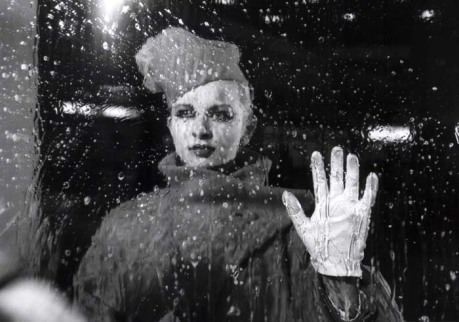South Africa
February 29, 2008
I am absolutely appalled by these students’ actions. They should be fucking expelled from university.
And why has this not received more press in the United States? Probably because students have committed similar or worse racist actions in this country. I don’t even know what to say.
Sex or Gender & Histories
February 28, 2008
Last night I was thinking about gender and history–and yes, I think about these things at home. This was prompted by a promo for an upcoming episode of Taboo on National Geographic. The focus of the episode will be on Sexual Identity, and while the program was quite interesting (its a rerun), I remember being disturbed by the their constant shift between the terms: sex and gender. While there is already amazing scholarship on this subject, I want to offer a succinct intervention.
Why gender as an analytic alternative to sex? Sex is a biological construct that relies upon reproductive capacity as a foundation for sexual difference. It creates a mutually exclusive binary structure that render as in invisible other histories that exist outside of this dualism. A number of “third-wave” and French feminists dispute the biological-natural status the distinction imputes to sex, arguing instead that both sex and gender are culturally constructed and structurally complicit. I am not yet familiar enough with this stance, but I do believe that it certainly warrants mentioning.
But at this moment I still understand sex as an analytic concept is subject to ahistorical forces which do not portray the altering circumstances of our social condition(s). Study of historical records reveal that the social conditions constructed vis-à-vis sexual difference—gender—has lead to hierarchy, inequalities and a number of other inequitable circumstances.
Gender offers a contextual variable that shapes to address social conditions.Through integrating gender as historically specific analytic concept, we can broaden historiography to include gendered personal and systematic experiences as equally valid as conventional means of recording history. Historical analysis is particularly useful to feminists who aim to develop a gender-based foundation to their social critique. Gender provides specifity to activist projects. Considering these advantages, we can easily see the relationship between gender and history is not an exclusive hierarchical setup, rather it is the feminist alternative, a mutually inclusive symbiotic partnership that will allow us to finally broaden our intellectual scope to fully understand our social conditions.
What do you think?
Fuck Binaries: Triologues and Multilogues
February 27, 2008
During a housewarming this past Saturday night (23 Febuary 2008), amidst great music and a flowing bar of drinks, I had a fabulous political conversation with three of the most brilliant people I have ever met. And Joaquin, Angelica, Jamila and I were definitely not talking about the upcoming presidential election–at the nexus of our conversation was simply how fucked up binaries can be. During the conversation I concluded that even the discourse we employ when speaking about politics can completely reinforce an mutually oppressive binary apparatus.
Example: Dialogue. We often think this term can lead toward progressive ends, but even within (di)alogue we can see the construction of a binary developing. Di is a greek numerical prefix meaning two or double. We hear of monologues and dialogues, but what about triologues or multilogues. Are our progressive (queer, feminist, womanist) politics flawed from its foundations?
In order to move beyond binaries, we should begin with considering the condition of binaries. Within an oppositional binary system, two items are juxtaposed with each other in a hegemonic cold war. One item aims to surmount the other…and in turn gains social value while the other is subjected to demonization. In this process, other items are (purposely) alienated from this system. This is best exemplified our hegemonic gender binary.
I cannot help but consider at this point, what is the purpose of gender. As it now stands, we are socially programmed to recognize two genders: male and female. Like every other binary structure, it is discursive and hegemonic in nature. Derrida (I love Derrida!) explores this discursive relationship that exists within our construction of social definitions. At the foundation of the definition of an object, we consider its meaning through juxtaposition with the object’s polar opposite. This process is exclusive and does not consider the conditions of other objects that live within this system. This is why I cannot identify as male. In the gender binary, male is valued over female. I cannot agree with this system. In this gender binary, male/female is the only acceptable structure. This rejects the existence of trans, gender-queer, two-spirited, and intersexed people. I cannot agree with this alienation. Binaries produce borderlands.
The borderlands are filled with knowledge and histories…but when will we finally open our minds to open the borderlands into conversation?
Volver
February 26, 2008
Running, running, running in Brooklyn
pack of cigarettes in my hand
I stumble
side to side
the last glass of wine hits me
I’m free
ready to kiki on the corner
sustenance meets me there
I am compelled to return from the obscure.
This past year has been shit–but it’s going to fertilize the flowers. And in their blooms, colors of my memories shall sobrevivir.
I miss my grandmothers. They were my histories. I yearn again to feel my father’s laughter upon my ears. He was my heart.
This is the time to return–like a refugee from the war on terror, I’m here: kicking and screaming.
Let’s start this shit.

